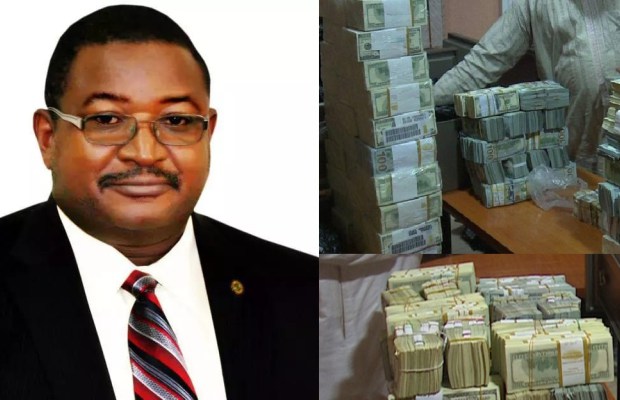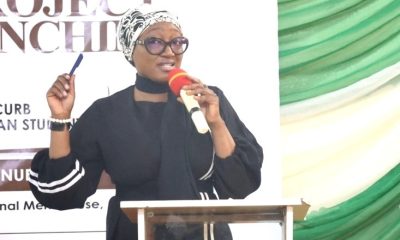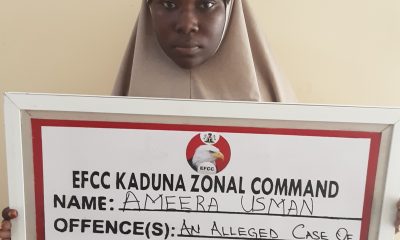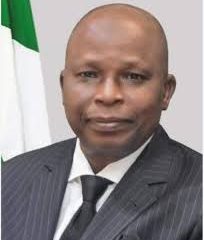NNPC ex-MD Andrew Yakubu, whose $9.7million and £74,000 stashed in a run-down house in Sabon Tasha, Kaduna, has filed a petition before a federal high court in Kano to reclaim the forfeited monies.
In the petition, Yakubu is urging the court to order the Federal Government to return the money valued at N3billion to him.
Yakubu had earlier claimed to the EFCC that the money was a gift.
The suit was filed on his behalf by Ahmed Raji, SAN.
Andrew asked the court to set aside the forfeiture order that granted FG ownership of the money which was discovered by operatives of the Economic and Financial Crimes Commission, EFCC, on February 9.
He wants the court to set aside the order and return the $9,772,800 and £74,000,000 which he said belongs to him.
The former NNPC boss insisted that the court lacked the jurisdiction to grant FG ownership of his money.
Quoting section 45 of the Federal High Court Act, Raji said an offence should be tried only
by a court exercising jurisdiction in the area or place where the offence was committed.
“No aspect of the perceived offence in respect of which the Order of February 13, 2017 was made, was committed within the Kano judicial division of this Honourable Court”, Raji argued.
The senior lawyer insisted that FG lacked the locus-standi to seek the interim order of the court granted on February 13.
“By Section 28 of the EFCC Act, only the commission, i.e. the EFCC has the vires to seek an order for the interim forfeiture of property under the Act.
“The power of this Honourable Court to make interim forfeiture order(s) pursuant to sections 28 & 29 of the Economic and Financial Crimes Commission Act, 2004 (herein after referred to a “EFCC Act”) is applicable ONLY to alleged offences charged under the EFCC Act and not to offences cognizable under any other law.
“The ex-parte order of this honourable court dated February 13, 2017, was made in respect of alleged offences under the Independent Corrupt Practices and other Related Offences Commission Act (herein after “ICPC Act”) and not the EFCC Act as prescribed by section 28 & 29 thereof.
“The conditions precedent to the grant of an interim forfeiture order under sections 28 & 29 of the EFCC Act were not complied with by the Applicant (FG) before the Order was made”, he said.

 Latest3 days ago
Latest3 days ago
 Crime5 days ago
Crime5 days ago
 Agribusiness6 days ago
Agribusiness6 days ago
 Business1 week ago
Business1 week ago
 Business4 days ago
Business4 days ago
 Agribusiness4 days ago
Agribusiness4 days ago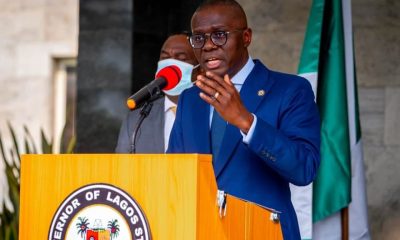
 Business5 days ago
Business5 days ago
 Featured1 week ago
Featured1 week ago
